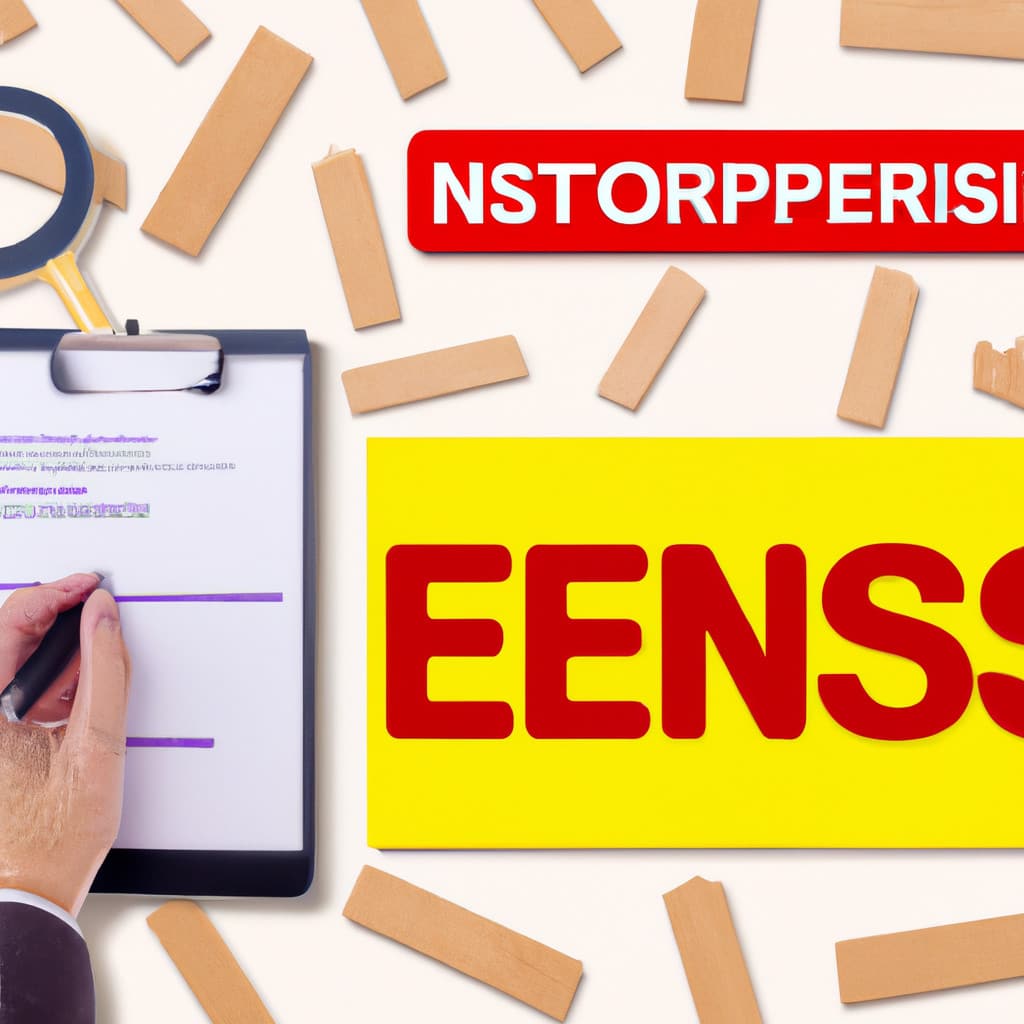7 Reasons Why PowerShell is Important in Today’s IT Industry
In a world where technology is constantly evolving, the IT industry has seen dramatic changes over the years. Among the numerous tools and technologies that have carved a niche for themselves in this dynamic ecosystem, PowerShell stands out as an indispensable resource for software engineers and system administrators alike. The importance of PowerShell cannot be overstated, and this article aims to shed light on its significance.
Here, we will delve into seven compelling reasons why you should consider learning and mastering PowerShell, no matter what stage you are at in your IT career. By the end of this article, you will have gained valuable insights into how PowerShell can make a tangible difference in your professional life.
1. Automation: A Key Aspect of Modern IT
One of the primary reasons for PowerShell’s importance is its ability to automate repetitive tasks. As an advanced command-line scripting language, PowerShell allows users to create scripts that execute various tasks on Windows-related components. This automation capability not only saves time but also reduces the possibility of human errors, which can lead to severe consequences in a production environment.
2. Cross-Platform Compatibility
Another crucial factor that sets PowerShell apart is its cross-platform support. Initially designed for Windows, PowerShell has now expanded its reach to macOS and Linux platforms with PowerShell Core. This cross-platform compatibility allows IT professionals to use a single scripting language across multiple systems, making it easier to manage and maintain their tasks efficiently.
3. Extensive Ecosystem and Community Support
PowerShell boasts an impressive ecosystem and community support that can make a huge difference in your IT endeavors. With an ever-growing library of modules and cmdlets available at the PowerShell Gallery, users have access to a vast repository of resources to perform various tasks. Furthermore, the PowerShell community is highly active on forums like Stack Overflow and Reddit, providing valuable help and guidance to newcomers and experienced users alike.
4. Seamless Integration with Other Technologies
PowerShell’s ability to integrate seamlessly with other popular technologies contributes significantly to its importance in the IT landscape. Whether you are working with cloud platforms like Microsoft Azure, AWS, or Google Cloud, or managing infrastructure through tools like Ansible, Chef, or Puppet, PowerShell can be leveraged to streamline the process effectively. This seamless integration ensures that IT professionals are always equipped with a powerful tool to help them excel in their work environment.
5. Scalability: PowerShell’s Secret Sauce for Large-Scale Operations
In large-scale environments with numerous systems to manage, PowerShell’s scalability becomes a game-changer. Thanks to PowerShell’s remote management capabilities, you can execute commands and scripts on multiple systems simultaneously, making the process more efficient and less time-consuming. With features like PowerShell Remoting and Windows Remote Management (WinRM), dealing with massive infrastructure becomes a breeze.
6. Desired State Configuration: Ensuring Consistency Across Systems
One of PowerShell’s unique features that contribute to its importance is the Desired State Configuration (DSC). DSC allows users to define and enforce a consistent configuration across multiple systems, making it an invaluable tool for IT professionals striving to maintain a standardized environment. With manifold benefits, such as streamlining deployment processes and ensuring compliance, DSC makes it evident why PowerShell is highly regarded in the IT industry.
7. Continuous Improvement and Evolution
Last but not least, PowerShell continues to improve and evolve with each new version. The constant updates and enhancements not only indicate Microsoft’s commitment to this versatile scripting language but also help users stay current with the latest developments and features. This continuous improvement ensures that PowerShell remains a valuable asset for IT professionals worldwide.
Conclusion: Embrace the Potential of PowerShell
With the seven key reasons outlined above, it becomes abundantly clear that PowerShell is an essential aspect of today’s IT industry. From automation and cross-platform compatibility to scalability and continuous improvement, the importance of PowerShell in the professional lives of software engineers and system administrators is undeniable.
If you have not yet explored the vast potential of PowerShell, now is the perfect time to dive in and discover how this powerful scripting language can help you excel in your career. By mastering the intricacies of PowerShell and leveraging its strength, you will be well-equipped to tackle even the most challenging tasks in your work environment. So, don’t hesitate any longer – embrace the power of PowerShell today and watch your IT career soar to new heights.
Why is PowerShell considered an essential tool for managing and automating tasks within the command-line environment?
PowerShell is considered an essential tool for managing and automating tasks within the command-line environment due to several key reasons:
1. Object-oriented and pipeline-based: Unlike traditional command-line environments, PowerShell is built on the .NET Framework, allowing it to work seamlessly with objects and pass them through a pipeline. This enables much more powerful and flexible scripting capabilities.
2. Unified management framework: PowerShell provides a consistent and unified framework for managing and automating various aspects of the Windows ecosystem, including Active Directory, Windows Server, Exchange, SQL Server, and many other Microsoft products.
3. Powerful scripting capabilities: With its advanced syntax and language constructs, PowerShell offers a comprehensive scripting environment for creating complex, reusable scripts and functions. This allows for increased efficiency and productivity in managing common tasks and processes.
4. Built-in cmdlet library: PowerShell comes with an extensive library of built-in cmdlets (command-line commands) that provide out-of-the-box functionality for a wide range of tasks. This makes it easier to get started with automating tasks without having to write custom scripts from scratch.
5. Extensibility: In addition to the built-in cmdlets, PowerShell supports third-party modules and custom cmdlets, enabling you to extend its capabilities even further. This opens up endless possibilities for creating customized solutions tailored to your specific needs.
6. Remote administration: PowerShell enables secure remote administration of systems, allowing you to manage multiple servers and devices from a single console, regardless of their geographical location.
7. Community support: With its widespread adoption and active community, finding help, resources, and best practices for using PowerShell is easier than ever.
In summary, PowerShell is an essential tool within the command-line environment due to its object-oriented nature, unified management framework, powerful scripting capabilities, and extensibility. These features make it an invaluable asset for IT professionals looking to efficiently manage and automate tasks within their environments.
What advantages does PowerShell offer over traditional command-line interfaces, making it important for IT professionals to learn and use it?
PowerShell offers several advantages over traditional command-line interfaces, making it an essential tool for IT professionals. Some of the key benefits include:
1. Object-oriented: Unlike traditional command-line interfaces that work with text-based output, PowerShell is built on the .NET framework and works with objects. This approach allows for more efficient data manipulation and seamless interaction with other applications and services.
2. Consistency and Usability: PowerShell uses a consistent verb-noun syntax, which makes it easier to learn and understand. It also offers better usability with features like tab completion, command history, and built-in help documentation.
3. Extensibility: PowerShell can be easily extended with new cmdlets and functions, providing limitless possibilities for customization and automation. This flexibility allows IT professionals to create their own tools and workflows tailored to their specific needs.
4. Powerful Scripting Capabilities: PowerShell scripting offers powerful programming constructs like loops, conditionals, and error handling. This functionality enables IT professionals to automate complex tasks, saving time and reducing the potential for human error.
5. Remote Management: With its native support for remote administration through WinRM (Windows Remote Management), PowerShell allows IT professionals to manage multiple systems from a single console, streamlining management tasks and reducing the need for physical access to devices.
6. Pipeline: The ability to pipe objects between cmdlets is another advantage of PowerShell, which simplifies data processing and enables the creation of more efficient one-liners.
7. Integration with other technologies: PowerShell can be used to interact with and manage various Microsoft and non-Microsoft technologies such as Active Directory, Exchange Server, SQL Server, Azure, and more, providing a single scripting language for cross-platform management.
In summary, PowerShell’s object-oriented approach, consistent syntax, extensibility, powerful scripting capabilities, remote management, pipeline, and integration with other technologies make it a vital tool for IT professionals to learn and use in their daily work.
How has PowerShell’s integration with other Microsoft products enhanced its importance in both administration and scripting tasks?
PowerShell’s integration with other Microsoft products has significantly enhanced its importance in both administration and scripting tasks. This tight integration allows administrators and developers to leverage PowerShell for various tasks, such as managing servers, automating deployments, and querying data.
One of the key integrations is with Microsoft Azure, allowing PowerShell to interact with Azure services and resources. This enables users to manage and automate their cloud infrastructure seamlessly using PowerShell scripts. Additionally, it allows for easier administration of virtual machines, storage accounts, and web apps.
PowerShell is also integrated with Active Directory, making it an essential tool for managing users, groups, and computer objects within a domain environment. The Active Directory module for PowerShell provides a powerful set of cmdlets that makes it easy to create, modify, and remove objects, as well as perform bulk operations.
Another important integration is with SharePoint, which allows administrators to manage SharePoint environments using PowerShell cmdlets. This can be used to automate tasks like creating sites, managing permissions, and deploying solutions, among others.
PowerShell also integrates with SQL Server, offering a set of cmdlets for managing and interacting with SQL databases. This enables administrators to automate daily tasks such as backups, index maintenance, and database provisioning, which significantly improves efficiency.
Moreover, PowerShell is integrated with System Center Configuration Manager (SCCM), making it easier to automate tasks related to software deployment, operating system updates, and asset management.
Finally, PowerShell’s integration with Exchange Server helps administrators manage mailboxes, policies, and other aspects of an Exchange environment, streamlining the process and reducing manual intervention.
In summary, the integration of PowerShell with various Microsoft products greatly enhances its importance in both administration and scripting tasks. Its tight integration with Azure, Active Directory, SharePoint, SQL Server, SCCM, and Exchange Server makes it a powerful and indispensable tool for managing and automating tasks in the Microsoft ecosystem.

